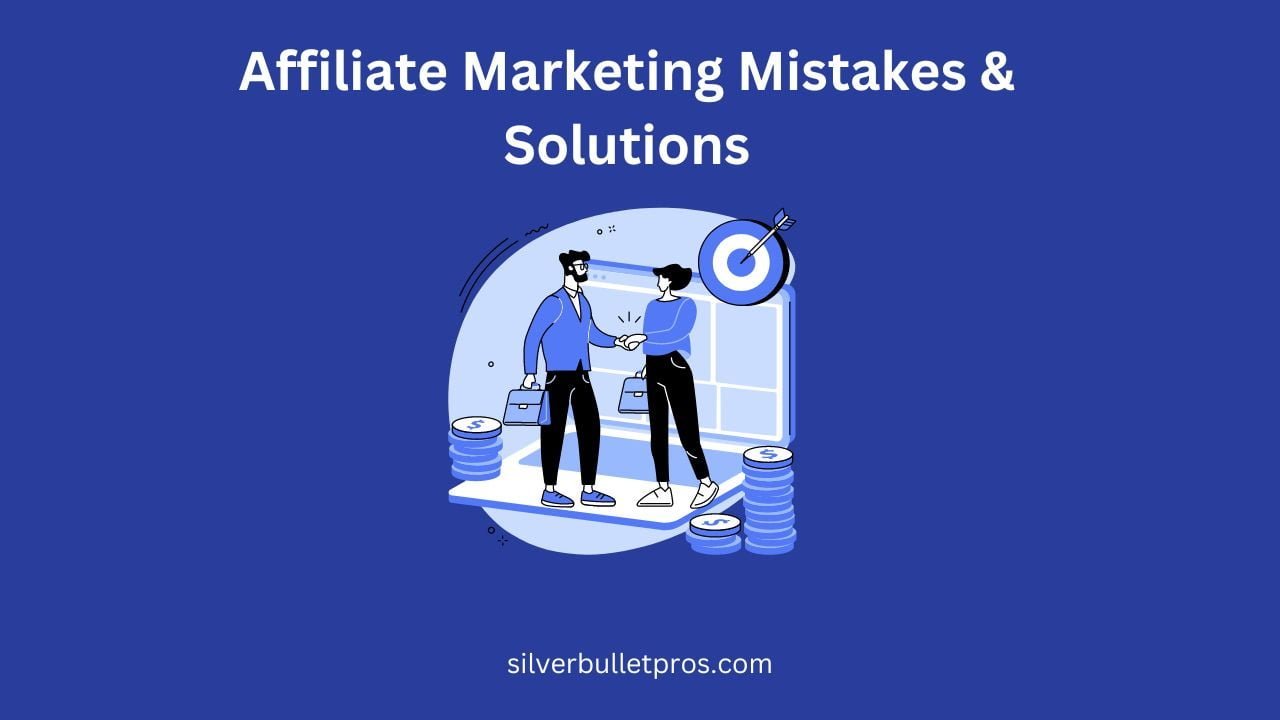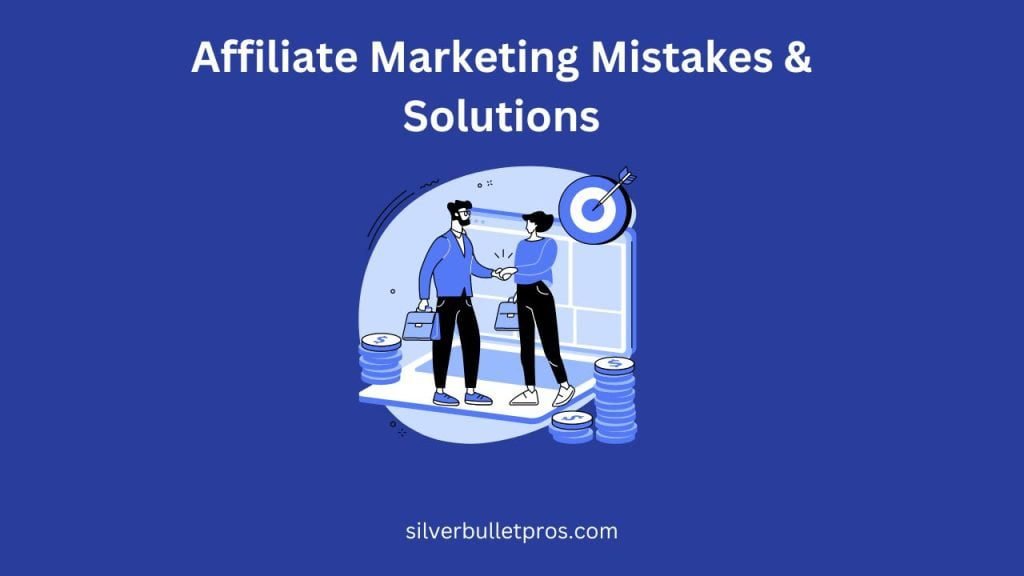

Affiliate marketing is a lucrative online business model that allows individuals to earn commissions by promoting products or services from other companies. However, many affiliate marketers unknowingly make mistakes that can significantly reduce their potential earnings. In this article, we'll explore common pitfalls that can cut your commissions in half, and provide valuable insights to help you maximize your affiliate marketing success. We'll also delve into the benefits of affiliate marketing and why it's crucial to avoid these common mistakes. Whether you're a seasoned affiliate marketer or just starting out, this comprehensive guide will equip you with the knowledge and strategies to navigate the affiliate marketing landscape effectively and unlock your full earning potential.
Here major mistakes affiliate marketer makes that cuts commissions in half including not promoting products that customers want, depending on only one brand, not conducting in-depth research, lacking knowledge about the product, having an ineffective website, lacking quality content, not paying attention to SEO, posting too much on social media without valuable information, not utilizing email marketing, and ignoring promotion opportunities, which can significantly reduce their potential earnings. 10 major mistakes affiliate marketer makes that cuts commissions in half, are given in detail.
1. Not Promoting Products that Customers Want
One of the biggest mistakes affiliate marketers make is promoting products that don't align with their audience's interests or needs. Successful affiliate marketing hinges on promoting products that people actually want to buy. Without a deep understanding of your target audience's pain points, preferences, and buying behaviors, you run the risk of promoting irrelevant products that fail to resonate, leading to low conversions and diminished commissions.
2. Depending on Only One Brand
Another common pitfall is relying solely on a single brand or affiliate program. While it may seem convenient to focus your efforts on one brand, this strategy can be risky. If that brand changes its commission structure, terminates its affiliate program, or experiences a decline in popularity, your income stream could be severely impacted. Diversifying your affiliate partnerships across multiple brands and industries can help mitigate this risk and provide a more stable and sustainable income.
3. Affiliate Marketing Without In-Depth Research
Successful affiliate marketing requires thorough research and planning. Many affiliates make the mistake of jumping into promoting products without fully understanding the market, competitors, audience demographics, and potential challenges. Conducting comprehensive research is crucial for identifying profitable niches, understanding audience behavior, and developing effective strategies for promoting and converting.
4. Lack of Knowledge About the Product
Promoting products you know little about can be detrimental to your affiliate marketing efforts. Customers often have questions or seek guidance before making a purchase, and if you can't provide knowledgeable insights or address their concerns, they may lose confidence and opt for a competitor. Thoroughly understanding the products you promote, their features, benefits, and use cases, will help you effectively communicate their value and establish trust with your audience.
5. Ineffective Website
In the digital age, your website is often the first point of contact between you and your potential customers. An ineffective website with poor design, navigation, or user experience can drive visitors away, negating your affiliate marketing efforts. Investing in a professional, user-friendly, and visually appealing website is crucial for building credibility, engaging visitors, and ultimately increasing conversion.
6. Lack of Quality Content
Content is king in affiliate marketing. Without high-quality, informative, and engaging content, it becomes challenging to attract and retain visitors, establish authority, and ultimately drive sales. Affiliate marketers who neglect content creation or produce low-quality, thin content are unlikely to succeed in the long run. Consistently creating valuable, relevant content that addresses your audience's needs and pain points is essential for building trust, establishing expertise, and increasing conversions.
7. Less Attention to SEO
Search engine optimization (SEO) is a critical aspect of affiliate marketing that many affiliates overlook. Without proper SEO strategies, your content and website may struggle to rank well in search engine results, making it difficult for potential customers to discover your offerings. Neglecting SEO can severely limit your website's visibility, organic traffic, and ultimately, your potential earnings. Implementing effective SEO techniques, such as keyword research, on-page optimization, and link building, can significantly improve your online visibility and drive more qualified traffic to your affiliate offers.
8. Too Many Posts on Social Media Without Valuable Information
While social media platforms can be powerful marketing tools, simply posting promotional content without providing value to your audience can be counterproductive. Bombarding your followers with constant affiliate links and sales pitches can quickly lead to audience fatigue and disengagement. Instead, focus on creating a balanced content strategy that combines valuable, informative posts with promotional content. Engage with your audience, share industry insights, and establish yourself as a trusted authority in your niche before promoting affiliate products.
9. Affiliates Without Email Marketing
Email marketing is a powerful tool for building relationships with your audience, nurturing leads, and driving conversions. However, many affiliate marketers overlook this crucial aspect of their marketing strategy. By neglecting email marketing, you miss out on opportunities to directly communicate with your audience, provide personalized recommendations, and promote affiliate offers effectively. Implement an email marketing strategy that includes lead magnets, nurture sequences, and targeted promotions to maximize your affiliate marketing potential.
10. Ignoring Promotion Opportunities
Finally, some affiliate marketers make the mistake of relying solely on organic traffic and ignoring other promotion opportunities. While organic traffic is valuable, diversifying your promotion channels can significantly increase your reach and potential earnings. Consider leveraging paid advertising platforms, influencer marketing, strategic partnerships, or guest posting opportunities to amplify your affiliate promotions and tap into new audiences.
What is Affiliate Marketing?
Affiliate marketing is a performance-based marketing strategy where businesses (merchants or advertisers) reward affiliates (publishers or marketers) for driving traffic or sales to their products or services through the affiliate's marketing efforts. Affiliates promote the merchant's products or services through various online channels such as websites, blogs, social media, email, or video content. When a customer makes a purchase or performs a specific action (such as signing up for a newsletter or filling out a form) as a result of the affiliate's marketing efforts, the affiliate earns a commission or a predetermined reward. Affiliate marketing is a cost-effective way for merchants to expand their reach and increase sales, while affiliates can monetize their online presence and earn passive income by promoting products or services that align with their audience's interests.
What are the Benefits of Affiliate Marketing?
Affiliate marketing offers several benefits, including passive income potential, low overhead costs, the ability to work from anywhere, and the opportunity to promote products you genuinely believe in. It's a flexible and scalable business model that allows you to earn commissions by promoting other companies' products or services.
What are the Most Common Mistakes Affiliate Marketers Make?
Some of the most common mistakes affiliate marketers make include promoting products that don't align with their audience's interests, relying on a single brand or affiliate program, lacking thorough market research, having inadequate product knowledge, neglecting website optimization, failing to produce high-quality content, overlooking SEO, overusing social media without providing value, neglecting email marketing, and ignoring promotional opportunities beyond organic traffic.